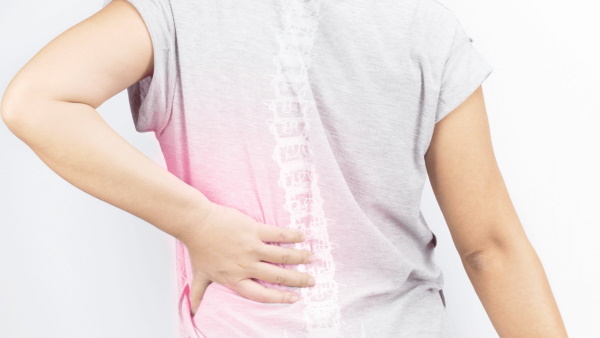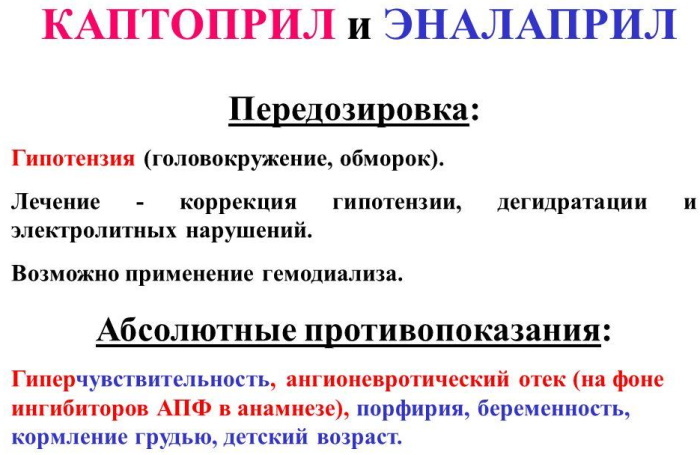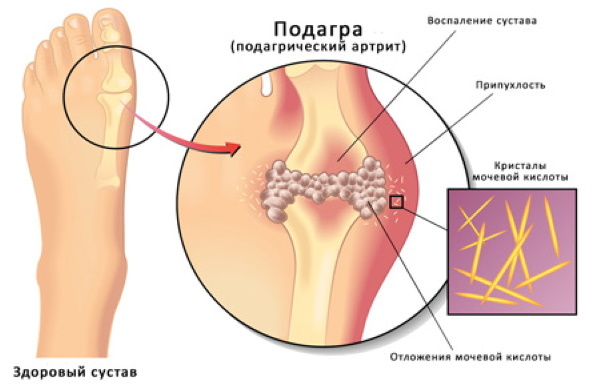According to medical statistics, urolithiasis is second in frequency among all urological diseases, and the third leading urological diseases that lead to death.

What it is?
Urinary stone disease - a chronic disease, which is caused by metabolic disorders and accompanied by the formation of kidney and urinary tract stones, formed from the components of urine.
The most common form of it - nephrolithiasis (kidney stone disease).
Causes of
Urolithiasis provoke different reasons:
- a sedentary lifestyle leads to metabolic abnormalities;
- infectious and inflammatory diseases of the urogenital system, which were caused by Streptococcus, Staphylococcus, Escherichia coli, Proteus vulgaris;
- kidney and other diseases of the urogenital system;
- unbalanced diet, mode disturbed too sharp, sour, salty foods in the diet;
- lack of vitamins A and B;
- use of contaminated water with harmful chemical elements in the composition;
- Some drugs can increase the acidity of urine and influence the work of the kidneys;
- poor working conditions, accompanied by a physically heavy work or work in the cold;
- tumor in the bladder;
- chronic gastrointestinal diseases (pancreatitis, gastritis, etc.);
- chronic renal disease and prolonged and urinary tract;
- osteoporosis and other disorders associated with the bones;
- genetic predisposition.
As for women, the pregnancy also affects the development of urolithiasis. Women bear a child, in the later stages is often disturbed the flow of urine. Uterus increases, pressing on the kidneys. For this reason, urine can stagnate, causing the development of infectious diseases.
Classification
Basically the pathogenesis of urolithiasis develops in the metabolic disorders in humans. This leads to the fact that some of the products and substances poorly processed and are not completely out of the body. They accumulate in the form of insoluble particles, and as a result there sand or stones in the urine. In chemical composition occurs stones classification. They come in several forms:
- Calcium-based (phosphates, carbonates). They are the most common (more than 60% of all stones).
- Containing salts of uric acid (urate). They are amenable to dissolution, found mostly in elderly patients.
- Based magnesium salts. Such stones provoke inflammation at the site of its localization.
- Protein stones (cystine, cholesterol). These protein stones are very rare.
The study of stones for their chemical composition is of great importance in the treatment of disease, the appointment of a diet.

Symptoms of kidney stones
There are symptoms of kidney stones in men only when the promotion generated by urinary tract stones. For a pathological condition characterized by a triad of clinical manifestations:
- pain of varying severity;
- changes in the urinary sediment (appearance of blood, pus, and other components);
- violation process urine excretion, up to complete anuria (obstructive genesis).
Pain syndrome may be constant or incoming, the degree of severity varies from achingly-pulling pain to unbearable renal colic that requires emergency hospitalization in the hospital.
To join the complaint of pain symptoms dysuric nature: frequent and painful urination, impaired bladder emptying processes. Patients complain of general weakness, decreased performance, a feeling of nausea and vomiting at the peak of pain (it does not bring any relief).
Symptom of urolithiasis, depending on the localization of the calculus, the following:
- Finding the calculus in the lumen of the urinary bladder accompanied by pain in the lower abdomen, the pain gives to the genitals, perineum or rectum. There are typical dizuricheskie disorders: frequent and painful urination, which can suddenly be interrupted (a symptom of "jet interruption").
- With the localization of calculus at different levels of the ureter pain shifts to the groin, characterized by its irradiation in the thigh and genitals. There are complaints of frequent and painful urination. When the stone completely blocks the lumen of one of the ureter, becomes unbearable pain (renal colic).
- If the stone is localized in pyelocaliceal apparatus kidneys, the patient has aching pain in the lumbar region of the corresponding side. Pain associated with a change in body position and movement of the patient. Often, there are traces of blood in the urine.
Often patients come to the doctor with the already departed stone, which is an indisputable sign of urolithiasis.
complications
The most common adverse outcome are the following pathological processes:
- calculary pyonephrosis (often suppurative cavity in kidney tissues arise in the form of recurrent stone disease);
- inflammation of the affected kidney to background blockage of the urinary flow (obstructive forms of pyelonephritis);
- gap ureter wall, the bladder or the urethra to the development of a septic condition in a patient;
- acute renal failure (observed in patients with a solitary kidney urolithiasis);
- scar deformation ureteral lumen and others.
Diagnostics
In order to avoid complications of kidney stones, doctors urologists recommend not to delay visiting the doctor and at the very first sign of illness to seek medical help. To recognize a disease, identify the location of stones, their size, to evaluate the work of the organs of the urogenital system, a comprehensive help differential diagnosis of urolithiasis, which consists of the destination laboratory and instrumental methods survey.
Diagnostics:
- Intravenous excretory diagnostics.
- Radiography - assesses the kidneys, ureters and bladder, recognizes the rocks.
- CT or MRI of the kidneys - informative diagnostic method to evaluate the performance of the entire urogenital system, to detect the slightest irregularities in its work.
- Renal ultrasound - visualizes all body structures, determines the number of stones and other visible irregularities in the urinary system.
Laboratory diagnosis:
- Urinalysis - defines urine pH, leukocyte count. Urine with urolithiasis are held quite often, because they help to identify the crystal salts, identify their composition.
- Blood - to determine the presence of inflammatory process, as evidenced by an increased sedimentation rate and the number of leukocytes.
- Daily urine test - allows you to assess the content of the urine of various salts.

Treatment of urolithiasis
ICD - a group of severe diseases, which in the absence of competent treatment may result in death of the individual. Self-treatment in this disease is unacceptable, so at the first sign of the disease need to seek medical care. Any form of urolithiasis treated comprehensively with the application:
- drugs;
- dieting;
- herbal medicine;
- physiotherapy;
- right living;
- lithotripsy by ultrasound;
- removal of stones.
Conservative method of treatment of urolithiasis in men performed considering comprehensive and systematic approach involves taking certain medications.
Medicines are prescribed depending on the composition of the stones:
- Citrate candles, diuretic medicines and vitamins (if oxalate calculi etiology);
- Diuretics, anti-inflammatory and diphosphonates (if detected stones have etiology phosphate). When such current ICD many doctors recommend home herbal therapy as adjuvant therapy;
- Medicaments delaying urea synthesis process. Also prescribed medicines that alter the degree of acidity of urine, which leads to the dissolution of stones (in the presence of urate stones etiology).
Preparations for the treatment of kidney stones are divided into the following groups:
- Pain medicine. Medikamentozno relieve pain during renal colic attack ( "Tempalgin", "Baralgin" and others).
- Antibiotics. An obligatory part of therapy. The antibiotic is selected individually by a urologist.
- Medications that provide the passage of the stone. The assignment depends on the size, composition and location ( "Furosemide").
- Antispasmodics. Removed the cause of the spasm relaxes the walls of the ureter, facilitating the passage of calculus ( "papaverine" No-spa, "Diprofen").
- Drugs that dissolve the stone. Selection means the composition of the concretion ( "Phytolysinum", "Solimok", "Urodan" and others, as well as the Supplements - "break", "Litovit").
The goal of drug therapy to prevent the aggravation of urolithiasis, to facilitate the general condition human, relax the muscles and the walls of the ureter (kidney), possible dissolution of stones and painless output.
Folk remedies
At home, in the absence of pain, and you can also use traditional methods for relapse prevention. When the phosphate rocks effect observed with regular infusions rosehip drink or barberry.
Applied and combined herbal preparations, consisting of several herbs that have a mild diuretic, antispasmodic and uroseptic action.
- Mix ingredients in the specified amounts: parsley vegetable garden grass - 20 g, bearberry leaves common, ordinary fruit juniper root harrow the field, dandelion root - 15 g; anise fruit, herb shepherd's purse - for '10 Pour 10 g of raw material in an enamel pot 1 cup boiling water, cover and heated in a water bath for 30 minutes, for 10 minutes, drain, thick overcome. The volume of broth with boiled water to bring to 200 ml. Take 1 / 2-1 / 3 cups warm 2-3 times a day.
- The herb Viola tricolor - 30 g, horsetail herb - 30 g herb Hypericum perforatum - 25g, dandelion grass - 25 g of root buckthorn laxative - 25 g; tablespoon chopped mixture brew cup of boiling water for 30 minutes, filter and take a glass 3 times a day with phosphate and carbonate rocks.
- This method of removal of stones is to receive two infusions. The first is preparing a decoction of the roots of wild rose. They must be milled using a coffee mill to ultimately give 50 g of dry powder. Then pour the powder with 700 ml water and leave to heat for boiling for 15 minutes. After that, prepare an infusion of bearberry. For this fill with boiling water (300 ml), dried or fresh grass (about 30 g), insist about 2-hours. Take the first means you need three times a day after meals with 300 ml. After 25 minutes, after its use, it should be bearberry infusion of 100 ml.
- Mix the ingredients in the indicated proportions: celandine grass - 30 g, Oregano grass - 20 g of barberry bark ordinary - 20 g; tablespoon mixture pour cup of boiling water for 30 minutes and take the glass 3 times a day with uric acid stones.
- Mix the ingredients in the indicated proportions: leaf and root of nettle - 50 g, licorice root - 30 g; tablespoon mixture pour cup of boiling water, before cooling, strain and drink in 3 divided doses throughout the day with nephrolithiasis nephritis.
- Dissolution of sand and stones in the urinary organs contribute to fresh onions and garlic, strawberries, melon seed decoction in milk, black radish juice with honey or sugar, infusions and decoctions of beans beans, peas, infusions of leaves shepherd's purse, black currant, fruit (fresh and dried), rose hips, fruit mountain ash, dandelion root, rhizome of the ordinary, corn stigmas, horsetail grass field (contraindicated in nephritis). Recommended pumpkin, cabbage and pickle juice, barberry, strawberry, wild rose.
List of traditional medicine recipes big. It is worth remembering contraindications of some herbs, so when choosing a method of treatment of folk remedies is required to consult a doctor.
surgical methods
Large urinary stones not amenable to dissolution, destroyed into small fragments that are either out themselves or are removed surgically. Destroy stones by lithotripsy by acting on them by the shock wave.
Several distinct types of lithotripsy:
- Contact lithotripsy - through the urethra and bladder stone supplied to the endoscopic device, the active part of which comes into contact with the calculus (so called contact method). the shock wave is formed in the place of contact.
- Percutaneous lithotripsy - with this technique, the lithotripter is introduced into the kidney through an incision in the lumbar region. It is used for crushing and giant staghorn stones.
- ESWL - Remote shock-wave lithotripsy - a noninvasive method, in which the effect on the stone in the kidney is performed without skin incisions and other invasive procedures.
In the case where crushed stone does not work, surgery is performed. Depending on the amount of operations, the following types of operations in urolithiasis:
- Nephrolithotomy - incision is made directly through the kidney. This step is shown at stones, which can not be removed by other methods and the ineffectiveness lithotripsy. It is the most difficult operation for the patient.
- Pyelolithotomy - calculus from the kidney is removed through a small incision of the renal pelvis.
- Ureterolithotripsy - surgery to remove the stone from the ureter.
food rules
Diet and nutrition in urolithiasis depends on the pH and composition of stones. Depending on their doctors drew up a list of products whose use is contraindicated in a particular case.
If the stones are urate origin, can not be accepted:
- Alcoholic beverages;
- coffee;
- broths;
- fried and spicy food;
- meat products;
- chocolate, cocoa;
- animal protein.
In the presence of phosphate stones can not be used:
- vegetables with skin and / or flesh is green;
- any spices;
- spicy dishes;
- pumpkin, including its seeds;
- legumes;
- potatoes;
- dairy products.
If there oksalantnyh stones should avoid eating:
- dairy products;
- citrus;
- strawberries and strawberry;
- lettuce;
- spinach;
- legumes;
- all varieties of cheese;
- nuts;
- sorrel;
- cocoa, coffee and tea.
Compliance with certain diet is an integral part of the therapeutic program, which allows suspend the further formation of stones in the urinary system, as well as suppress the growth of existing stones.
Dining with urolithiasis is based on the following principles:
- Do not overeat. Food that enters the stomach in large quantities, will only aggravate the situation.
- The systematic use of food. Ideally, you want to eat at about the same time. It is not recommended to skip meals, this can lead to increased stone formation and deterioration of health.
- Do not eat too calorie foods. The energy value of the products must meet the energy costs that are taking place in reality.
- The diet should be rich in foods abundant in vitamins and amino acids.
- Drink about 2-3 liters of normal non-carbonated water per day. This will increase the amount of urine.

prevention
When the diagnosis of "urolithiasis" prevention should be carried out much sooner than the first signs of the disease. Particular attention should be paid to the health people who are at risk or have chronic diseases associated with metabolism.
Prevention of urolithiasis includes compliance with the following recommendations:
- Consume pure water. In some regions, the water contains large amounts of salts, which leads to an increase in their concentration in the urine and the formation of crystals. Better buying bottled water, or to use filters with a high degree of purification.
- Keep drinking regime. If there are no contraindications, a person should drink about 2 liters of fluid per day. The best option - it is clean drinking water. It is an ideal solvent and helps to dilute the salt, prevent the formation of crystals and the formation of these stones. People living in hot climates, it is necessary to increase the volume to 3 liters.
- Eat balanced. Kidney stones are formed and meat lovers who stick to the protein diet, and vegetarians who consume a lot of acidic fruits and vegetables. Therefore, the diet should be varied and balanced composition. The day is recommended to eat 150-170 grams of meat and 50 grams of fish. Do not necessarily have them every day, for example, you can fish 2 times a week for 300 g daily also requires 300-400 grams of vegetables and as much fruit in any form. Cereals and bread in the amount to be obtained 300-400 g
- Avoid dehydration. Infectious diseases, burns, hot weather, exercise duration and exercise cause significant fluid loss. You constantly have to replenish its reserves. For this purpose, it is desirable to drink often (every half hour) can be small portions of 100-150 ml. This will help to reduce toxicity, to withdraw the harmful substances from the body and protect the kidneys.
- Take your vitamins. Deficiency of vitamins, especially E and group B has a negative impact on the state of the mucous urogenital organs and the kidneys, and also leads to disruption of metabolic processes. Therefore it is recommended to drink vitamin complexes 2 times a year.
- Do not overdo the food. For the adult daily rate of salt - it is 5 grams or one teaspoon. This number includes all the salt in the dish you are cooking and in food (mayonnaise, herring, potato chips). Excess salt complicates the kidneys.
- Go outdoors. UV deficit is bad for bone condition. Of these minerals are washed away, which can take part in stone formation.
- Timely treat diseases of the urinary system. Any inflammation can trigger the formation of stones, and the aggravation of kidney stones. Therefore, when the first symptoms, seek qualified help, and not self-medicate.
- Maintain an active lifestyle. Lack of physical activity contributes to stagnation of urine. And exercises to strengthen the abdominal muscles and the lumbar improve kidney function and eliminate congestion. Daily norm should be walking (30-40 minutes) and a set of exercises lasting 15-20 minutes. The best option is further gym visit or 2-3 times per week pool.
- Periodically take herbal diuretics. Suitable watermelon, pomegranate juice, concentrated decoction of dried apricots (100 g in 0.5 L water). Diuretic and anti-inflammatory effects have some medicinal herbs: bear ears, corn silk, horsetail and bearberry. They "washed" the kidneys do not give salts to precipitate and output already formed small stones and sand.
- Keep an eye on the health of the digestive system. Deficiency of digestive enzymes in the digestive tract diseases leads to the formation of calcium-oxalate stones. For example, when ascorbic acid indigestion converted into oxalate, which is deposited in the kidneys in the form of crystals.
- Avoid hypothermia. Keep warm legs and lower back. Receptors located in these areas have a reflex connection with the kidneys and the bladder. Hypothermia can cause inflammation and smooth muscle spasm around the stone.
Particular attention should be paid to the prevention of people whose relatives are suffering from kidney stones. Since there is a high probability that the propensity to stone formation is descended.



